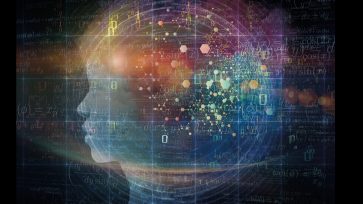For registered participants, lectures will be recorded and available to view online using the following link:
www.faraday.cam.ac.uk/science-and-faith-perspectives-on-the-art-of-being-human-the-faraday-institute-summer-course-2022/
Sunday 3rd July – Friday 8th July, 2022
Theme: Science and Faith Perspectives on the Art of Being Human
What does it mean to be human? What is the significance of human life on planet earth? How do science and faith perspectives on such questions relate to each other? How have these perspectives changed through history to the present day? These questions underlie the theme of this year’s Faraday Institute Summer Course which will bring together insights from science, philosophy and theology on a broad range of topics including artificial intelligence, cosmology, medicine and physics, and touch on themes of beauty, freedom, suffering and truth.
This course is aimed at University students or graduates from any background. No formal training in science, philosophy or theology is assumed. Although many of the speakers have a personal Christian faith, the talks are intended for those of all faiths or none.

Venue: The course will be hosted in Lucy Cavendish College at the University of Cambridge, a short walk from the heart of historic Cambridge and the river Cam.
Schedule: A provisional schedule outline is available here. A list of confirmed speakers is provided below.
Note: the number of in-person tickets is strictly limited by the lecture venue – book early to avoid disappointment! 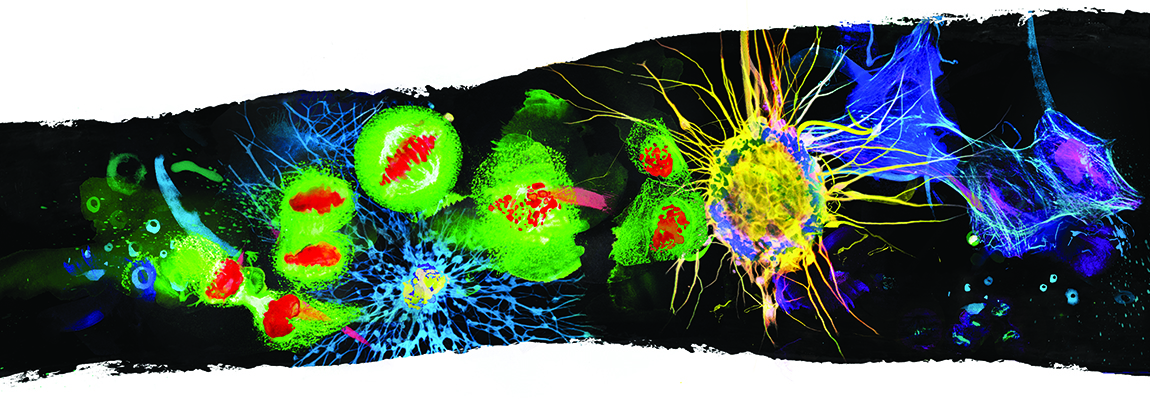
Ticket types and Costs:
In-Person Attendance:
Includes participation in the full course program plus all lunches, dinners and refreshments from 3pm on Sunday 3rd July until 3pm on Friday 8th July at the course venue. An immersion experience in Cambridge with opportunity to meet other participants, speakers and Faraday Institute staff informally during meals and breaks. An optional outing to the Whipple Museum on Wednesday afternoon will be arranged. Places are limited to a maximum of 50 people.
Online Attendance:
Includes participation in the full course program, including live Q&A sessions and Meet the Speaker events, through Zoom webinars and meetings, as well as access to talk recordings and supplementary online materials.
Costs:
Online-only: regular ticket £150, student ticket: £75.
In-person [Non-Residential]: regular ticket £750, student ticket £475 – [initial deposit £300]
Special rate B&B single accommodation @ Lucy Cavendish College for 5 nights: £250. A booking link will be sent to all in-person ticket holders.
Notes:
For in person attendance, a deposit of £300 is required to reserve a place, with full payment due by 15th May 2022. In the case of cancellation, the maximum refund will be the difference between in-person and online attendance, and such refunds are not guaranteed. No tickets for pro rata attendance are available. Attendees remain fully responsible for their own travel, accommodation, insurance and incidental costs. We are unable to provide letters for visa purposes. For student tickets, evidence of full-time student status (undergraduate or postgraduate) will be required.
Help Sponsor a Student
The activities and resources provided by The Faraday Institute are entirely dependent on charitable grants and donations. If you would like to help us make subsidised student places and scholarships available for this and future courses, please visit our support page.
Scholarships & Bursaries
A small number of scholarships and bursaries may be available to allow attendance at a reduced cost. Please visit the scholarships page to find out more.
Any questions please email: events@faraday.cam.ac.uk

Illustrations from the Wonders of the Living World Project, Danny Allison, © Lion Hudson IP Limited, www.wondersofthelivingworld.org
Confirmed speakers include:
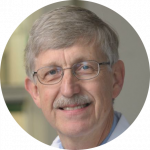 Dr Francis Collins – Plenary (online, two talks)
Dr Francis Collins – Plenary (online, two talks)
‘With All Your Mind’
Abstract Our current secularized and technological culture leads many to conclude that a faith perspective is no longer relevant. But a rational approach to understanding the complexity and beauty of nature, as well as the intrinsic longings of the human heart, can be seen as signposts to a holy Creator God who seeks fellowship with each of us. The life, teaching, death on the cross, and resurrection of Jesus brings this all together as an indescribably joyful synthesis of God’s creative majesty, love, and grace. For me, those realizations have made science a form of worship, and the laboratory a kind of cathedral.
‘Truth in Crisis: an Appeal to the Better Angels of People of Faith’
Abstract It is natural for scientists to assume with Descartes that humans are wired to be rational actors. But David Hume’s alternative view “Reason is a slave of the passions” turns out to be particularly at work in the present era of intense political passions, where misinformation and disinformation on critical areas such as the COVID pandemic or climate change seem capable of overriding objective truth. In fact, truth itself seems often to be under attack in an era of “alternative facts”. People of faith know Jesus’ words that the truth will set you free (John 8:32) and so ought to be in a particularly strong position to resist politically driven lies and conspiracies, but the opposite seems to be true. In our polarized society where distrust of scientific expertise is growing, how can we recover a shared sense of values that include truth and goodness?
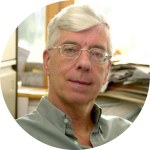 Dr Denis Alexander ‘Are We Slaves to Our Genes’
Dr Denis Alexander ‘Are We Slaves to Our Genes’
Abstract There is a common misconception that our genomes – all unique, except for those in identical twins – have the upper hand in controlling our destiny. The latest genetic discoveries, however, do not support that view. Although genetic variation does influence differences in various human behaviours to a greater or lesser degree, most of the time this does not undermine our genuine free will. Genetic determinism comes into play only in various medical conditions, notably some psychiatric syndromes. Denis Alexander here demonstrates that we are not slaves to our genes. He shows how a predisposition to behave in certain ways is influenced at a molecular level by particular genes. Yet a far greater influence on our behaviours is our world-views that lie beyond science – and that have an impact on how we think the latest genetic discoveries should, or should not, be applied.
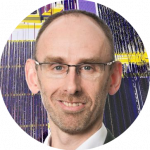 Graham Budd ‘Artificial Intelligence: Humanity in the Age of AI’
Graham Budd ‘Artificial Intelligence: Humanity in the Age of AI’
Abstract The past 10 years have seen unprecedented advances in Artificial Intelligence, through ever-larger deep neural networks. AI is already (often invisibly) shaping our daily lives, with vast opportunities to benefit humanity in applications from healthcare to autonomous vehicles. How can we address the risks around bias, privacy, safety and accountability, which are becoming more apparent as AI capabilities accelerate ? How will AI affect the future of work and society ? The rise of AI also poses fundamental questions for science, theology and philosophy about what it means to be human and intelligent, which will influence the choices we make in shaping the future of AI. Are humans “just another machine”, and what is the nature of personhood in the age of AI ?
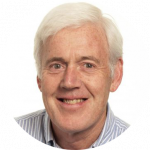 Prof. Paul Ewart ‘Order, Randomness & the Meaning of Life’
Prof. Paul Ewart ‘Order, Randomness & the Meaning of Life’
Abstract The order observed in the universe, and described by the laws of Nature, is often cited as evidence of an underlying Mind that is identified with God. Nature, however, is permeated with randomness that suggests the ultimate absence of purpose or meaning in existence. This lecture will explore the possible rationale for God’s making randomness an inherent part of his Creation and that explains its role in a morally responsible and dynamic relationship with God. Thus, randomness, instead of being a robust argument for atheism, becomes a strong argument for the existence of a personal God.
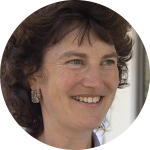 Prof. Rebecca Fitzgerald FMedSci ‘Cancer Medicine: Science or Art?’
Prof. Rebecca Fitzgerald FMedSci ‘Cancer Medicine: Science or Art?’
Abstract Cancer diagnosis and treatment is changing rapidly, with new technologies that mean we can read-out changes specific to an individual’s tumour with unprecedented resolution and in a time frame that can impact on clinical decision making. These exciting advances also lead to challenges for the clinician, the patient, the health care system and society at large. For example, how do we make screening, diagnosis and treatment affordable and accessible for everyone? How do we be sure not to overlook the person amidst the science and technology – to deliver medicine in a way that is kind and personal (not just personalised).
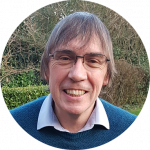 Revd Dr David Gregory ‘Seeking the Divine in Scientific Imagery’
Revd Dr David Gregory ‘Seeking the Divine in Scientific Imagery’
Abstract Through much of Christian history, artists have used visual media to connect people with God and the Christian story. Scientists also use imagery to communicate with people. Popular science programmes often feature striking visual images to wow their audiences, provoking moments of wonder. Can such images enable encounter with the divine akin to the way art has allowed? How might they be viewed so that they communicate not only scientific insights but also something of the divine artist behind creation, allowing fresh spiritual insights to both those in the church and in wider society?
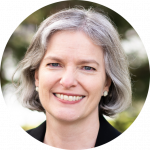 Dr Deborah Haarsma ‘Life beyond earth and the place of humans in the cosmos’
Dr Deborah Haarsma ‘Life beyond earth and the place of humans in the cosmos’
Abstract Astronomical discoveries fill us with amazement at the wonders of the universe. The new James Webb Space Telescope (JWST) will reveal even more, including properties of planets around other stars. If these planets contain living things, JWST may see signs of it in the altered atmospheres of the planets. What would it mean for humanity to discover intelligent life beyond earth? Would it change our view of God or our view of what it means to be human? Could consideration of modern astronomical findings alongside ancient Christian theology bring us to a deeper understanding of God, the universe, and ourselves?
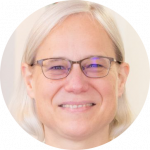 Prof. Lydia Jaeger ‘Human Liberty in a World Described by Science’
Prof. Lydia Jaeger ‘Human Liberty in a World Described by Science’
Abstract Free will confronts us with a paradox: on the one hand, we experience ourselves as being able (on some occasions) to decide for ourselves which course of action to take. On the other hand, the scientific view of human beings sees them as determined by a set of scientifically-describable factors. The present paper starts by examining the Kantian strategy, and other NOMA-type approaches, to overcome this paradox and finds them wanting. It then argues for radical non-reductionism: each particular science captures a certain dimension, but does not provide a complete description of reality.
Even taken together, the natural sciences do not exhaustively describe reality, and therefore cannot exclude free will. According to Steven Horst’s cognitive pluralism, scientific laws describe partial causal contributions. Therefore, however successful any scientific model may be, it cannot preclude the possibility that there are other causal factors at work.
Finally, creation is shown to offer a framework that is both coherent and succeeds in allowing human liberty to find its place in a world described by science. In particular, creation provides key presuppositions underlying the scientific method, while at the same time recognizing the multidimensionality of reality and significant human freedom.
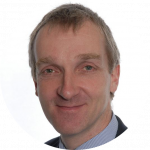 Prof. Tom McLeish FRS ‘Towards a Wisdom-Based Theology of Science’
Prof. Tom McLeish FRS ‘Towards a Wisdom-Based Theology of Science’
Abstract Before the 20th century, anyone whose work would now attract the label ’scientist’ would have been called a ’natural philosopher’. ‘Philos-Sophia’ – the love of wisdom – suggests that the story of Wisdom is one deeply constitutive of the scientific enterprise, albeit as deeply buried today. This lecture traces the thread from Biblical Wisdom literature through to its nourishment of medieval and early-modern science, and suggests ways in which a recovery of Wisdom in science today would support a healthier public and educational framing of science, as well as enrich the discussion of ’science and religion.’
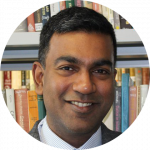 Prof. Sujit Sivasundaram ‘Global History of Science and Religion’
Prof. Sujit Sivasundaram ‘Global History of Science and Religion’
Abstract The period between the rise and the fall of the British empire – that is, from the late eighteenth to the mid-twentieth centuries – witnessed an intense encounter between religious cultures and scientific ideas across the globe. Colonialism brought with it the movement of peoples and the imposition of new political structures worldwide. Many religious believers sought to redefine their faith in line with new scientific thinking. This story cannot be reduced to either a model of conflict or of complementarity between religion and science.
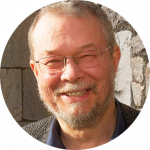 Prof. Christopher Southgate ‘Being Human in the Light of Natural Disasters’
Prof. Christopher Southgate ‘Being Human in the Light of Natural Disasters’
Abstract This talk will reflect on what natural disasters tell us about the ambiguity of God’s creation, and go on to look at the characteristic ways communities respond to shock-events. We shall consider the implications for Christian worship, prayer, and the search for wisdom.
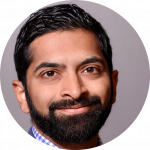 Prof. Brandon Vaidyanathan ‘Beauty and Religiosity in Science’
Prof. Brandon Vaidyanathan ‘Beauty and Religiosity in Science’
Abstract Drawing on data from a large international survey of scientists conducted in 2021 in the UK, US, Italy, and India, this presentation will discuss physicists’ and biologists’ views on the roles of awe, wonder, and beauty in the practice of science. It will also assess the relationship between aesthetics, religiosity/spirituality, and well-being among scientists.
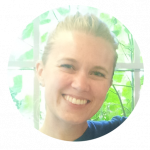 Prof. Cara Wall-Scheffler ‘Evolutionary Anthropological Perspectives on Becoming Human’
Prof. Cara Wall-Scheffler ‘Evolutionary Anthropological Perspectives on Becoming Human’
Abstract This lecture outlines numerous aspects of the human condition, including inferences that can be made about sociality and culture from paleontological and archaeological material. Crucial remains, and the interpretation of these remains, allows us to recognize that our physical body and the capacity of our mind to understand non-physical ideas emerge together and most likely evolved in tandem. This offers us important insights into how learning about God is integral to human evolution.
We look forward to welcoming you there!
Bookings are now closed
Any questions please email: events@faraday.cam.ac.uk




